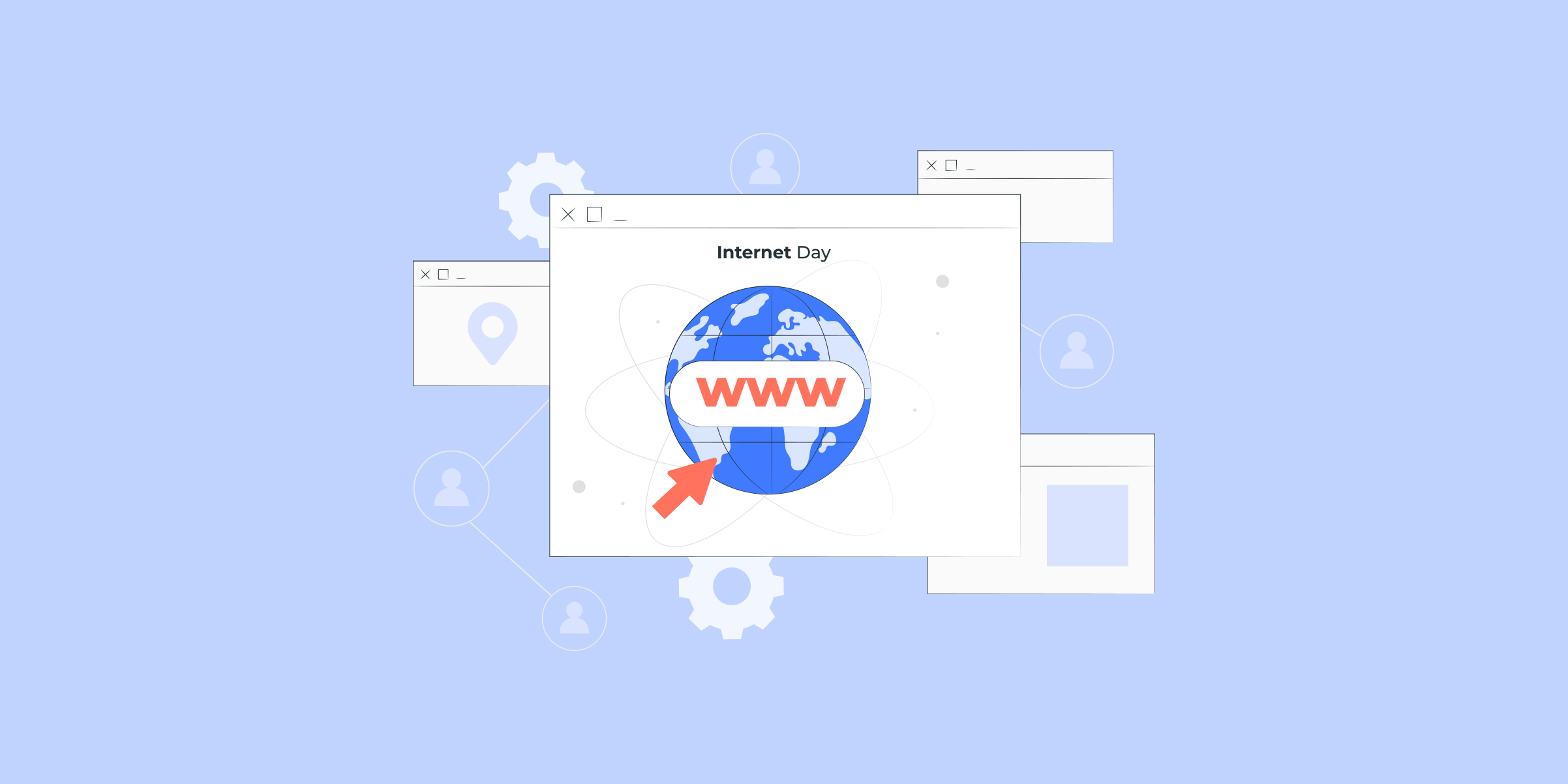Residential Proxies
Allowlisted 200M+ IPs from real ISP. Managed/obtained proxies via dashboard.

Proxies Services
Residential Proxies
Allowlisted 200M+ IPs from real ISP. Managed/obtained proxies via dashboard.
Residential (Socks5) Proxies
Over 200 million real IPs in 190+ locations,
Unlimited Residential Proxies
Unlimited use of IP and Traffic, AI Intelligent Rotating Residential Proxies
Static Residential proxies
Long-lasting dedicated proxy, non-rotating residential proxy
Dedicated Datacenter Proxies
Use stable, fast, and furious 700K+ datacenter IPs worldwide.
Mobile Proxies
Dive into a 10M+ ethically-sourced mobile lP pool with 160+ locations and 700+ ASNs.
Scrapers
Collection of public structured data from all websites
Proxies
Residential Proxies
Allowlisted 200M+ IPs from real ISP. Managed/obtained proxies via dashboard.
Starts from
$0.6/ GB
Residential (Socks5) Proxies
Over 200 million real IPs in 190+ locations,
Starts from
$0.03/ IP
Unlimited Residential Proxies
Unlimited use of IP and Traffic, AI Intelligent Rotating Residential Proxies
Starts from
$1816/ MONTH
Rotating ISP Proxies
ABCProxy's Rotating ISP Proxies guarantee long session time.
Starts from
$0.4/ GB
Static Residential proxies
Long-lasting dedicated proxy, non-rotating residential proxy
Starts from
$4.5/MONTH
Dedicated Datacenter Proxies
Use stable, fast, and furious 700K+ datacenter IPs worldwide.
Starts from
$4.5/MONTH
Mobile Proxies
Allowlisted 200M+ IPs from real ISP. Managed/obtained proxies via dashboard.
Starts from
$1.2/ GB
Scrapers
Web Unblocker
Simulate real user behavior to over-come anti-bot detection
Starts from
$1.2/GB
Serp API
Get real-time search engine data With SERP API
Starts from
$0.3/1K results
Scraping Browser
Scale scraping browsers with built-inunblocking and hosting
Starts from
$2.5/GB
Documentation
All features, parameters, and integration details, backed by code samples in every coding language.
TOOLS
Resources
Addons
ABCProxy Extension for Chrome
Free Chrome proxy manager extension that works with any proxy provider.
ABCProxy Extension for Firefox
Free Firefox proxy manager extension that works with any proxy provider.
Proxy Manager
Manage all proxies using APM interface
Proxy Checker
Free online proxy checker analyzing health, type, and country.
Proxies
AI Developmen
Acquire large-scale multimodal web data for machine learning
Sales & E-commerce
Collect pricing data on every product acrossthe web to get and maintain a competitive advantage
Threat Intelligence
Get real-time data and access multiple geo-locations around the world.
Copyright Infringement Monitoring
Find and gather all the evidence to stop copyright infringements.
Social Media for Marketing
Dominate your industry space on social media with smarter campaigns, anticipate the next big trends
Travel Fare Aggregation
Get real-time data and access multiple geo-locations around the world.
By Use Case
English
繁體中文
Русский
Indonesia
Português
Español
بالعربية

How HTTP Proxy Enhances Security and Performance for Your Web Browsing
Introduction
HTTP proxy is a vital tool in modern web browsing, providing enhanced security and improved performance. In this blog post, we will explore what an HTTP proxy is, its benefits, and how it can optimize your online experience. Whether you are an individual user or a business, understanding and utilizing an HTTP proxy can help protect your sensitive data and enhance web browsing speed and efficiency.
Section 1: What is an HTTP Proxy?
An HTTP proxy, also known as a web proxy, acts as an intermediary between a user's device and the internet. It receives the user's web requests, forwards them to the desired web server, and then transmits the server's response back to the user. This proxy server serves as a middleman, allowing users to access resources on the internet without directly connecting to the web server.
Section 2: Benefits of Using an HTTP Proxy
1. Enhanced Security: By using an HTTP proxy, your IP address is masked, providing anonymity while browsing the web. This helps protect your identity from potential hackers or unauthorized monitoring. Additionally, an HTTP proxy can filter and block malicious websites, reducing the risk of malware infections.
2. Access Control: HTTP proxies allow administrators to control access to certain websites or content, making them valuable tools for businesses and educational institutions. They can restrict access to specific websites or block certain types of content to ensure compliance with company policies or to create a safe browsing environment.
3. Performance Optimization: HTTP proxies can cache frequently accessed web pages, reducing bandwidth usage and improving response times. This caching mechanism stores a copy of the requested web page on the proxy server, allowing future requests to be fulfilled quickly. This feature is particularly useful in environments where multiple users access the same content regularly.
Section 3: Types of HTTP Proxies
There are several types of HTTP proxies, each with its own specific functions and advantages:
1. Forward Proxy: These proxies are typically used by individual users and act as intermediaries between users and the internet. They are commonly employed to bypass geo-restrictions and access blocked content.
2. Reverse Proxy: Reverse proxies are deployed on web servers to optimize performance and securely deliver web requests to backend servers. They help balance the load across multiple servers and protect against DDoS attacks.
3. Transparent Proxy: Transparent proxies require no configuration on the user's side and often monitor and filter web traffic without the user's knowledge.
Conclusion
Using an HTTP proxy offers numerous advantages, including enhanced security, access control, and improved performance. Whether you are an individual user wanting to protect your online privacy or a business seeking to optimize your internet usage, employing an HTTP proxy can be a game-changer. Take advantage of the benefits offered by an HTTP proxy and enjoy a safer, faster, and more efficient web browsing experience.
Featured Posts
Popular Products
Residential Proxies
Allowlisted 200M+ IPs from real ISP. Managed/obtained proxies via dashboard.
Residential (Socks5) Proxies
Over 200 million real IPs in 190+ locations,
Unlimited Residential Proxies
Use stable, fast, and furious 700K+ datacenter IPs worldwide.
Rotating ISP Proxies
ABCProxy's Rotating ISP Proxies guarantee long session time.
Residential (Socks5) Proxies
Long-lasting dedicated proxy, non-rotating residential proxy
Dedicated Datacenter Proxies
Use stable, fast, and furious 700K+ datacenter IPs worldwide.
Web Unblocker
View content as a real user with the help of ABC proxy's dynamic fingerprinting technology.
Related articles

Unlock the Best Proxies for Enhanced Performance on Yahoo Apps
Looking for the best proxies for Yahoo apps? Discover top proxy solutions to enhance your Yahoo app usage. Optimize your privacy and access with reliable proxies.

Scraping Jobs from the Internet: A Comprehensive Guide
Looking to scrape jobs from the internet? Learn how to efficiently gather job listings online. Find out how to automate job searching easily.

Unlocking Hidden Gems: Phone Number Scraping on Craigslist Revealed
Looking to scrape Craigslist for phone numbers? Learn how to efficiently extract contact information from Craigslist listings with this comprehensive guide. Maximize your outreach and save time by accessing phone numbers directly through web scraping techniques. Get started today!